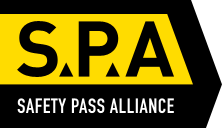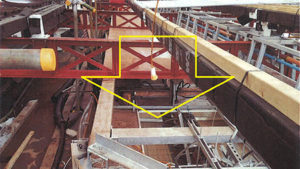9 July 2018
A security fencing manufacturing company has been fined after a worker sustained significant injuries on site.
Liverpool Magistrates’ Court heard how, on 23 February 2017, John Evans, an employee of Blok N Mesh Limited had been helping to manually load fencing panels into shipping containers when approximately 34 panels fell on him. Mr Evans suffered significant injuries as a result including; a broken left shoulder, fractured vertebrae in his neck, two broken ribs, contusions to his lungs, and soft tissue damage to his face.
An investigation by the Health and Safety Executive (HSE), found that workers were put at risk by the company not having suitable control measures in place to load the panels safely to prevent them from falling. There had been two previous incidents of fencing falling on workers, which should have acted as a warning to the company that the loading procedure was dangerous.
The investigation also found that the company failed to ensure that work was sufficiently planned, risks were assessed and controlled and that a safe system of work was in place. The company subsequently loaded the fencing using specially designed stillages, eliminating the need for workers to be inside the container, and therefore significantly reducing the risk of injury.
Blok N Mesh Limited of Leytonstone House, Leytonstone, London, pleaded guilty to breaching Section 2 (1) and Section 3 (1) of the Health and Safety at Work etc. Act 1974 and was fined £260,000 and ordered to pay costs of £5,177.30.
Speaking after the incident, HSE inspector Helen Jones said “This incident could so easily have been avoided by ensuring workers weren’t put in a dangerous situation, where unsecured fence panels could easily fall and cause serious injury.
“This company had two previous accidents in identical situations, which should have served as a warning that the system in place was dangerous should they have heeded this warning, the serious injuries suffered by Mr Evans could have been prevented.”.
Notes to Editors:
- The Health and Safety Executive (HSE) is Britain’s national regulator for workplace health and safety. We prevent work-related death, injury and ill health through regulatory actions that range from influencing behaviours across whole industry sectors through to targeted interventions on individual businesses. These activities are supported by globally recognised scientific expertise. hse.gov.uk[1]
- More about the legislation referred to in this case can be found at: legislation.gov.uk/
 [2]
[2] - HSE news releases are available at http://press.hse.gov.uk[3]
- http://www.hse.gov.uk/pUbns/priced/hsg246.pdf





















